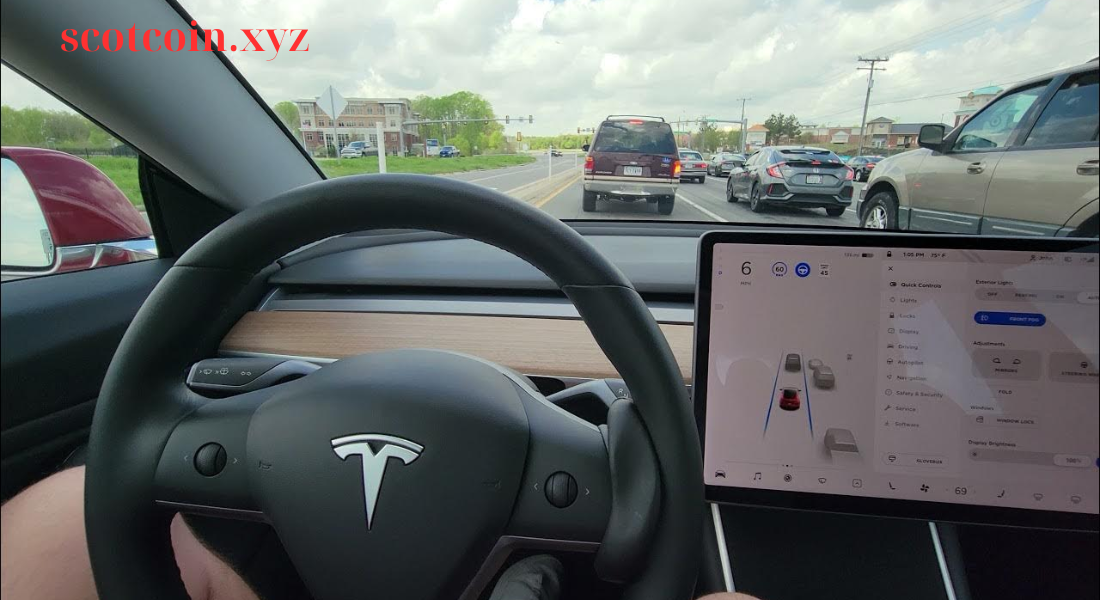Blog
Why a Wireless Wheel Sensor is the Ultimate Upgrade for Your Car
In the world of modern car technology, the wireless wheel sensor stands out as a powerful innovation. These sensors offer real-time insights into wheel speed, tire pressure, and temperature, enhancing both safety and efficiency. With wireless technology, these sensors make it easy to monitor crucial vehicle data, especially for those who prioritize performance, safety, and cost savings. This article delves into the benefits, applications, and selection tips for wireless wheel sensors, giving you all the information needed to understand and choose the best sensor for your needs.
Why a Wireless Wheel Sensor Matters
A wireless wheel sensor provides accurate, immediate data without the need for complex wiring. This sensor measures and relays wheel and tire conditions to a central system, offering valuable information for drivers and vehicle systems alike. By monitoring tire pressure, temperature, and wheel speed, wireless wheel sensors contribute to optimized fuel efficiency, longer tire life, and safer driving conditions.
What Makes the Wireless Wheel Sensor Different? The wireless nature of these sensors simplifies installation and increases flexibility, as they transmit data wirelessly to a display or vehicle computer. Unlike traditional sensors that rely on wiring, wireless wheel sensors reduce maintenance complexity and offer enhanced accuracy, making them an ideal choice for tech-savvy drivers.
Key Benefits of a Wireless Wheel Sensor
- Enhanced Safety Monitoring
A wireless wheel sensor provides immediate alerts when tire pressure drops or when a tire overheats, ensuring you’re aware of any issues before they become dangerous. This proactive approach to safety helps prevent accidents and keeps you in control. - Improved Fuel Efficiency
Properly inflated tires use less fuel. By providing continuous tire pressure monitoring, the wireless wheel sensor helps maintain ideal inflation, which translates to improved fuel economy. Over time, this can lead to noticeable savings at the gas pump. - Extended Tire Life
Underinflated or overinflated tires wear unevenly and reduce tire lifespan. With a wireless wheel sensor, you can monitor tire conditions and ensure they stay within the recommended range, which reduces the need for frequent replacements and saves money. - Real-Time Data and Alerts
The best wireless wheel sensors offer real-time data, alerting you instantly to any changes in tire conditions. Whether it’s a sudden loss of pressure or an increase in temperature, these sensors notify you right away, giving you the information needed to take action. - Easy Installation and Maintenance
Unlike wired systems, wireless wheel sensors are easier to install and maintain. Without the need for complex wiring, they can be set up quickly, and their wireless design reduces the chance of wear and tear on connectors.
Practical Applications for a Wireless Wheel Sensor
- Daily Commuting and Long-Distance Travel
For drivers who spend hours on the road, a wireless wheel sensor adds peace of mind. The sensor continuously monitors wheel conditions, ensuring that your tires stay within safe limits, reducing the chances of tire blowouts during long drives. - Commercial Fleet Management
Fleet operators benefit from wireless wheel sensors as they allow centralized monitoring of all vehicles. These sensors help maintain consistent tire health across the fleet, reducing maintenance costs and improving vehicle uptime. - Off-Road and All-Terrain Adventures
Off-road enthusiasts often face challenging terrains that can put stress on tires. A wireless wheel sensor monitors tire pressure and temperature, helping drivers avoid unexpected issues that could cut an adventure short. - Sports and Performance Vehicles
Performance vehicles rely on precise wheel and tire conditions for optimal handling. Wireless wheel sensors provide the real-time data necessary for performance tuning, helping drivers keep their vehicles in peak condition. - Seasonal and Weather Changes
Seasonal temperature changes can affect tire pressure. With a wireless wheel sensor, you can quickly identify these fluctuations and adjust accordingly, ensuring your tires perform at their best regardless of weather conditions.
Choosing the Right Wireless Wheel Sensor
When selecting the best wireless wheel sensor for your vehicle, consider the following factors:
- Compatibility with Your Vehicle
Not all sensors fit every vehicle, so ensure the wireless wheel sensor you choose is compatible with your make and model. Many manufacturers provide compatibility guides to help make the selection easier. - Battery Life and Power Efficiency
Look for sensors with long-lasting battery life, especially if you want low-maintenance operation. The best wireless wheel sensors include efficient power management, extending battery life for months or even years. - Data Accuracy and Range
Ensure the sensor provides accurate readings for tire pressure, temperature, and wheel speed. Additionally, choose a model with a strong wireless signal to maintain reliable data transmission, even over longer distances. - Display and Alerts
Some wireless wheel sensors come with dedicated displays or can be integrated into your vehicle’s onboard system. Check whether the sensor offers visual or audio alerts for low tire pressure or overheating for added safety. - Durability and Weather Resistance
A wireless wheel sensor should be durable and able to withstand various weather conditions. Sensors with high resistance to water and dust are essential for drivers who frequently encounter rain or rough roads.
Tips f or Using a Wireless Wheel Sensor Effectively
or Using a Wireless Wheel Sensor Effectively
- Regular Calibration and Testing
To ensure accuracy, calibrate your wireless wheel sensor periodically. Follow the manufacturer’s guidelines on calibration and perform tests to verify that the sensor functions correctly. - Inspect Battery Levels
Check the battery level regularly, especially if you frequently drive long distances. Many wireless wheel sensors have battery indicators, making it easy to know when it’s time for a replacement. - Respond to Alerts Promptly
When your sensor sends an alert, address the issue immediately. Ignoring tire pressure or temperature warnings can lead to unsafe driving conditions, so prioritize maintenance when needed. - Keep Sensor Firmware Updated
Some advanced wireless wheel sensors allow for firmware updates, improving performance or adding new features. Check for updates regularly and follow the instructions to keep your sensor functioning at its best. - Monitor Tire Condition Manually
Although wireless wheel sensors provide valuable data, it’s still helpful to inspect tires visually and manually from time to time. Regular checks help you spot potential issues the sensor might not detect, such as visible wear or cuts.
Recommended Wireless Wheel Sensors for Reliable Performance
- Tymate TPMS Wireless Sensor
Tymate offers an affordable, user-friendly option with excellent battery life and accurate readings. It comes with a clear display, ideal for monitoring multiple wheels simultaneously. - EEZTire Tire Pressure Monitoring System
Known for its reliability, EEZTire’s sensor provides real-time alerts for both pressure and temperature. With a robust wireless range, it’s perfect for larger vehicles or trailers. - Vesafe Wireless TPMS
This compact sensor is easy to install and includes visual and audible alerts. Vesafe’s model is designed for everyday drivers, offering dependable performance and straightforward operation. - Nonda ZUS Smart Tire Safety Monitor
Nonda’s wireless wheel sensor integrates with your smartphone, providing app-based monitoring. It’s an excellent choice for tech-savvy drivers who want a comprehensive view of tire health. - FOBO Tire Plus Sensor
FOBO’s model uses Bluetooth to connect directly to a smartphone app, offering easy access to real-time data. With a long battery life and durable build, it’s suitable for various driving conditions.
Wrapping Up: Why a Wireless Wheel Sensor is Worth the Investment
A wireless wheel sensor brings convenience, safety, and performance to your vehicle, making it a valuable addition for drivers who prioritize reliability. By monitoring critical tire data, this sensor helps prevent blowouts, improves fuel efficiency, and extends tire lifespan, saving you money in the long run. Whether you’re a frequent traveler, a fleet manager, or an off-road enthusiast, investing in a wireless wheel sensor ensures that you have the information needed to keep your tires in top condition.
Explore the range of wireless wheel sensors available and choose one that best suits your vehicle and driving style. With accurate data and timely alerts, a wireless wheel sensor transforms your driving experience, adding peace of mind every time you hit the road.



